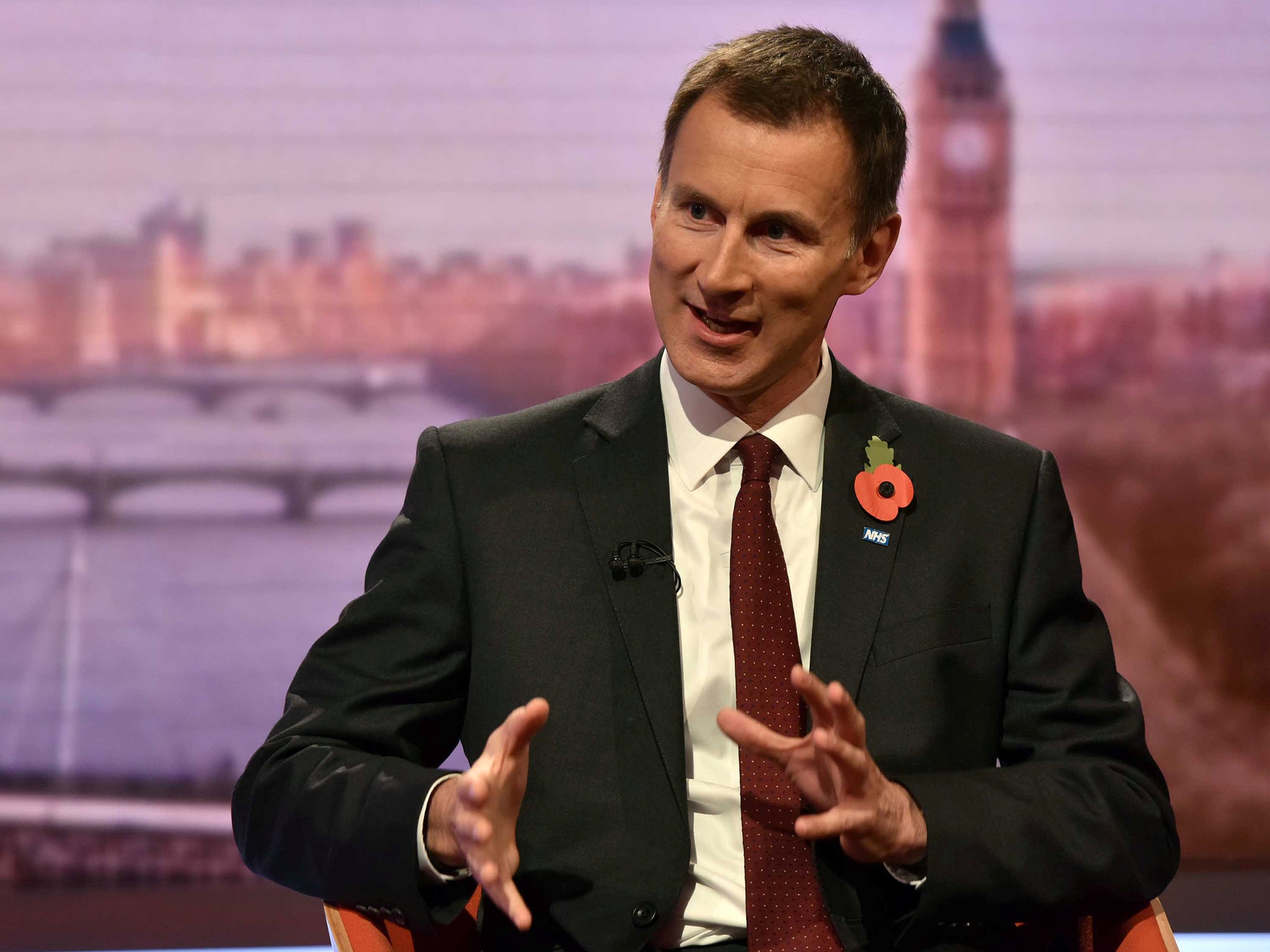Government says NHS hospitals can wring out another £300m in efficiency savings
Push for savings comes after barrister behind Mid Staffs NHS Trust inquiry warns fixation on 'balancing books' led to failings in care

Your support helps us to tell the story
From reproductive rights to climate change to Big Tech, The Independent is on the ground when the story is developing. Whether it's investigating the financials of Elon Musk's pro-Trump PAC or producing our latest documentary, 'The A Word', which shines a light on the American women fighting for reproductive rights, we know how important it is to parse out the facts from the messaging.
At such a critical moment in US history, we need reporters on the ground. Your donation allows us to keep sending journalists to speak to both sides of the story.
The Independent is trusted by Americans across the entire political spectrum. And unlike many other quality news outlets, we choose not to lock Americans out of our reporting and analysis with paywalls. We believe quality journalism should be available to everyone, paid for by those who can afford it.
Your support makes all the difference.The Government has drawn up a ‘league table’ ranking NHS organisations on how much they spend on everyday items, including bandages, stethoscopes and bedpans.
And it says £300m could be saved from the NHS's £30bn supplies bill if every organisation paid the lowest price for items.
Speaking at the NHS Providers Conference in Birmingham today, health secretary Jeremy Hunt said every penny saved would be “reinvested in frontline services”.
But this follows a week of warnings over the NHS budget and senior figures warning the major care failings at Mid Staffordshire NHS Trust came about organisations were only focused on “balancing the books”.
The cheapest, most commonly used items had some of the biggest price swings.
Some areas pay almost 50 times more for rubber gloves, which range from £0.35 to £16.47 for a pack of 12.
While there is a £20 difference in spending on a pack of plasters which can cost as much a £21.76.
The five worst performing NHS trusts could save more than £11m if they bought their supplies in line with the best performers, the Department of Health said.
Trusts in the north west were leading the way in efficiency, with Wrightington, Wigan, and Leigh NHS Foundation Trust and Bradford Teaching Hospitals NHS Foundation Trust singled out as top performers.
This builds on the challenge set by Lord Carter in his review of NHS waste, which said £700m a year could be saved.
What are the best and worst performing NHS trusts spending on everyday items?
Stamping out variation could save £300m a year
Rubber Gloves (Pack of 12) - £0.35 to £16.47
Single Bedding set - £4.16 to £16.99
Stethoscope - £26.78 to £90
Blood pressure cuff - £14.67 to £82
Bandage Scissors - £26.67 to £44.45
Bedpan - £6.74 to £13.05
Adhesive Plasters (Pack of 100) - £1.68 to £21.76
Bandage compression (25 to 32cm) - £6.79 to £8.95
Health Secretary Jeremy Hunt said he was “immensely grateful” for the work already done to cut waste.
“But we must not be complacent when there is still baffling variation in the prices that hospitals are paying for supplies,” he added. “With many paying over the odds for the same products sold more cheaply at a neighbouring trust.
“We want to support the NHS to save money wherever possible so it can be reinvested into frontline services, making sure taxpayers get the best value from the Government’s investment in the NHS.”
But the health secretary was talking hours after senior health service leaders warned MPs that the biggest care failings of the last decade came because patient care became secondary to productivity.
Sir Robert Francis, who led the inquiry into failings at Mid Staffs hospital, was asked by MPs on the Commons Health Select Committee if nurse staffing shortages could see the same failings repeated.
Sir Robert said, while there was a renewed focus on patient safety under the current Government, there were some similarities.
“What I do see as a bit of a coming full-circle, at the time at Mid Staffordshire there was huge pressure on organisations to balance their books, to make productivity improvements, and matters of that nature.
“It all became about figures in the books, rather than outcomes for the patient. And I do believe there’s a danger of that happening again.”
He added there were a growing number of roles coming in to fill shortages of trained registered nurses.
This was a concern echoed in a later session with nurse leaders including Janet Davies, chief executive of the Royal College of Nursing.
She warned that every budget for supporting nurses had been cut, including the body that investigates assaults on staff and a “huge reduction” in training budgets to keep nurses up-to-date and to allow them to take on specialised roles.
“This is the training for district nursing, for health visiting, for the advanced practice and specialist nurses,” she said.
“Two years ago the budget for continuing professional development training for nurses, in England, was £205 million, this year it’s £83m.”
Subscribe to Independent Premium to bookmark this article
Want to bookmark your favourite articles and stories to read or reference later? Start your Independent Premium subscription today.
Join our commenting forum
Join thought-provoking conversations, follow other Independent readers and see their replies
Comments